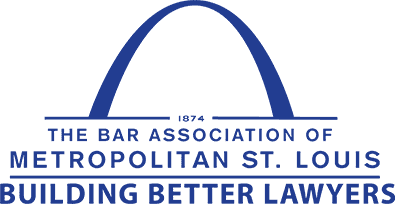
Epithelioid Mesothelioma
What Is Epithelioid Mesothelioma?
Epithelioid mesothelioma is a rare type of cancer that affects the mesothelial cells which line the body's cavities, including the lungs and abdomen. It is caused by asbestos exposure, usually from occupational sources. Epithelioid mesothelioma is one of the most common types of this cancer, making up approximately 50-70% of all mesothelioma cases. The symptoms of epithelioid mesothelioma include chest pain, difficulty breathing, fatigue, and increased fluid in the chest or abdomen. Symptoms are unlikely to appear soon after the asbestos exposure and typically take several decades to become apparent, a latency period that can make diagnosis difficult. A diagnosis can be achieved through a combination of imaging studies (including x-rays, CT scans, and MRIs) and a biopsy. Treatment can include surgery to remove tumors and chemotherapy or radiation therapy to help shrink tumors. Prognosis depends on how far the disease has progressed when it is detected, but with early diagnosis and treatment, outcomes can be improved. Many patients have a life expectancy of 1.5 to 6 years after diagnosis.
Were you diagnosed with epithelioid mesothelioma? Call (855) 744-1922 or contact us online to start exploring your legal options.
Symptoms of Epithelioid Mesothelioma
While constant fevers and fluid buildup are two of the most common symptoms associated with epithelioid mesothelioma, a patient’s precise symptoms will vary based on several factors, including their overall health, their age, the cancer’s cell type, and where the tumor specifically develops. Again, many patients only experience noticeably severe symptoms at the latest stages of the disease.
Common symptoms of epithelioid pleural mesothelioma include:
- Chest pain
- Coughing
- Difficulty breathing
- Fever
- Fluid buildup in the lungs
- Sudden weight loss
Common symptoms of epithelioid peritoneal mesothelioma include:
- Abdominal pain and swelling
- Constipation
- Fever
- Fluid buildup in the abdomen
- Loss of appetite
- Sudden weight loss
Diagnosing Epithelioid Mesothelioma
The symptoms of epithelioid mesothelioma are similar or identical to a range of other diseases, including other cancers and even the flu. This can make getting an accurate diagnosis very difficult, as mesothelioma is rare, and many doctors are not experienced in recognizing its symptoms. This makes emphasizing any known history of asbestos exposure extremely important, as it is one of the key causes of this cancer. You should tell your doctor about any work in professions that may have exposed you to asbestos, even if you are not aware of any confirmed exposure.
If your doctor is reluctant to specifically test you for epithelioid mesothelioma, it is in your best interest to seek out a cancer center or a mesothelioma expert. These doctors can run several basic tests to rule out similar diseases before proceeding with more targeted diagnostic tools, such as chest x-rays and CT scans, that can get you closer to an accurate diagnosis. Then, a biopsy can confirm the diagnosis.
A biopsy involves collecting a sample of cells or tissue from the affected area for microscopic examination under a microscope by pathologists (doctors who specialize in diagnosing diseases). This allows them to determine whether or not cancerous cells are present and if they are consistent with epithelial mesothelioma. In some cases, additional tests such as imaging scans may be needed to confirm the diagnosis before treatment begins.
Family Matters.

-
"Thank you for calling just to check on me. You don’t know how much that means to me."- John L.
-
"At SWMW Law, people really do matter."- Lois M.
-
"My deepest gratitude to the attorneys and everyone who are working on my husband’s case for him."- Jeanne M.
Is There a Cure for Epithelioid Mesothelioma?
To date, there is unfortunately no effective cure for epithelioid mesothelioma. The prognosis for this type of cancer varies depending on many factors such as the patient's age and overall health status as well as the stage at which it was diagnosed. Unfortunately, due to its aggressive nature and difficulty in diagnosis, epithelioid mesothelioma is usually only discovered after it has reached an advanced stage with few treatment options available. Treatment is intended to ease the symptoms suffered by the patient and marginally increase their life expectancy.
Treatments for Epithelioid Mesothelioma
After evaluating radiographs and pathology reports, a doctor may recommend targeted treatments such as chemotherapy, radiation therapy, or surgery depending on how advanced the tumor is and its location in the body. Treatment options are limited due to this cancer's aggressiveness and its general resistance to traditional therapies. Epithelioid mesothelioma is generally easier to treat than other types of mesotheliomas, however.
Treatment for epithelioid mesothelioma typically involves chemotherapy combined with surgery where possible. Surgery may be curative (though it can almost never actually cure the cancer, just help you live longer) or palliative (which is designed to ease or prevent the symptoms). These surgeries typically involve efforts to remove cancerous tissue from the lungs and surrounding areas.
Chemotherapy and immunotherapy are also treatment options for epithelioid mesothelioma. They may be pursued individually or combined with surgery. Chemotherapy involves using powerful drugs to kill cancer cells and shrink tumors. It may be used as palliative treatment to reduce symptoms such as pain or shortness of breath and can extend life expectancy for those who are not candidates for surgery. Alternatively, by using immunotherapies (including checkpoint inhibitors or CAR-T cell therapies), doctors may be able to target specific areas affected by epithelioid mesothelioma with greater accuracy and fewer side effects than standard treatments.


Diagnosed with Epithelioid Mesothelioma? Talk to a Lawyer.
Epithelioid mesothelioma is linked predominantly to asbestos exposure, an occurrence that is in most cases completely avoidable. Asbestos companies knew the risks of this toxic substance but did nothing to protect workers and customers. You and your family are likely entitled to compensation if you were exposed to asbestos and subsequently developed epithelioid mesothelioma, and our compassionate legal team at SWMW Law can help you understand your legal options. Depending on the circumstances of the exposure, we may be able to get you compensation through a lawsuit, workers’ compensation claim, or asbestos bankruptcy trust. Our attorneys specifically focus on these cases and are committed to helping families in your situation – because people and accountability matter. We have already recovered over $750 million for victims and their families and will leverage our experience, skills, and resources in our fight to get you what you deserve. Your story matters, and we are committed to getting you and your family justice.
If you or someone you know was diagnosed with epithelioid mesothelioma, do not wait to schedule a complimentary consultation. Call (855) 744-1922 or contact us online today.


-
![]() Decades of Cumulative Experience
Our team is comprised of dozens of highly talented and experienced attorneys ready to fight for your best outcome.
Decades of Cumulative Experience
Our team is comprised of dozens of highly talented and experienced attorneys ready to fight for your best outcome. -
![]() Thousands of Clients Represented
Over the course of our firm's experience, we have helped thousands of victims and their families recover.
Thousands of Clients Represented
Over the course of our firm's experience, we have helped thousands of victims and their families recover. -
![]() National Reach
We come to you wherever you are in the United States to help you and your family recover.
National Reach
We come to you wherever you are in the United States to help you and your family recover. -
![]() Resources + Personal Attention
A senior partner of our firm will be involved in your case, utilizing a team approach with massive resources uniquely applied to your case.
Resources + Personal Attention
A senior partner of our firm will be involved in your case, utilizing a team approach with massive resources uniquely applied to your case.

Because Justice Matters.
Whether you have questions or you’re ready to get started, our legal team is ready to help. Complete our form below or call us at (855) 744-1922.








